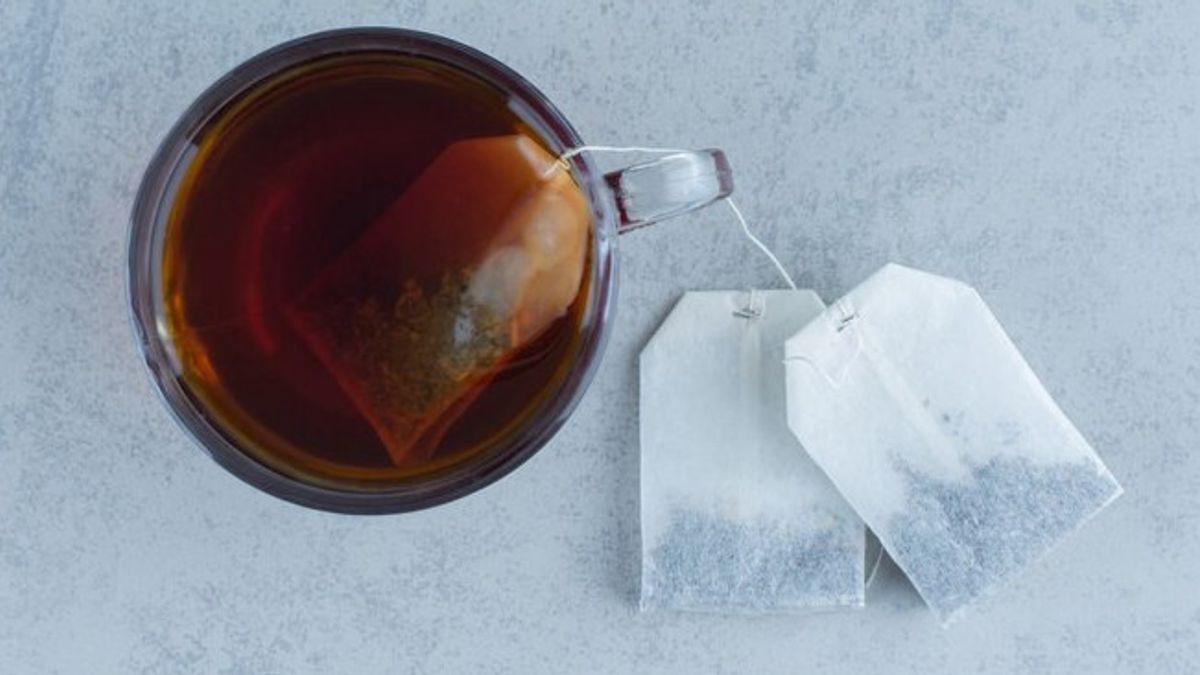Teabags are a practical choice for many people who want to enjoy a cup of tea without a hassle. However, recent research reveals the surprising fact that teabag bags made from plastic can release billions of microplastic particles into our bodies when soaked in hot water. These findings add to concerns about the plastic impact on human health and the environment.
Reported by VOI from IFL Science on Saturday, December 28, 2024, research conducted by researchers from Spain and Germany tested three types of teabag bags commonly sold on the market, namely tea bags made from nylon-6, polypropylene, and cellulose-based polymers.
As a result, tea bags made from polypropylene released about 1.2 billion microplastic particles per milliliter, with an average size of 137 nanometers. In fact, bags made from cellulose that should have been more environmentally friendly also released about 135 million microplastic particles per milliliter.
Despite nylon-6 releasing particles in less numbers (about 8.18 million particles per milliliter). However, this number is still significant enough to spark concern.
These particles are small enough to enter the body through the digestive tract and have the potential to interact with body cells, especially human intestinal cells.
Microplastics that enter the body can interact with intestinal cells and potentially cause disturbances to the biological function of the body.
Although this study did not find any direct damage to cells exposed to microplastics, interaction of particles with cell cores remains a concern. Because, it can potentially cause long-term effects such as genetic or cancerous disorders.
In addition, decomposed plastic in the environment can also contaminate soil and water, adding to wider environmental problems. Therefore, it is important to choose a safer and more environmentally friendly tea bag.
SEE ALSO:
Based on this study, tea bags made from cellulose, made of plant fiber, have proven to be more environmentally friendly than plastic tea bags such as nylon and polypropylene.
Selulosa is a natural ingredient that has existed in the human body for millions of years, making it easier for our bodies to process. In addition, tea bags made from cellulose tend to be more biodecomposable than plastic bags.
However, even though tea bags made from cellulose are safer, it is important to check product labels. Some bags of tea made from cellulose are still coated with thin plastic to increase endurance which can still release microplastics.
Therefore, it is better to choose a tea bag really plastic-free or use loose leaf tea that is brewed using an infusor.
If you want to avoid microplastics at all, the best option is loose leaf tea. Loose leaf tea does not use plastic bags at all, so you can enjoy tea without worrying about microplastic exposure. You just need to use an infusor or sieve to brew tea, which is more environmentally friendly and safe for health.
The English, Chinese, Japanese, Arabic, and French versions are automatically generated by the AI. So there may still be inaccuracies in translating, please always see Indonesian as our main language. (system supported by DigitalSiber.id)















